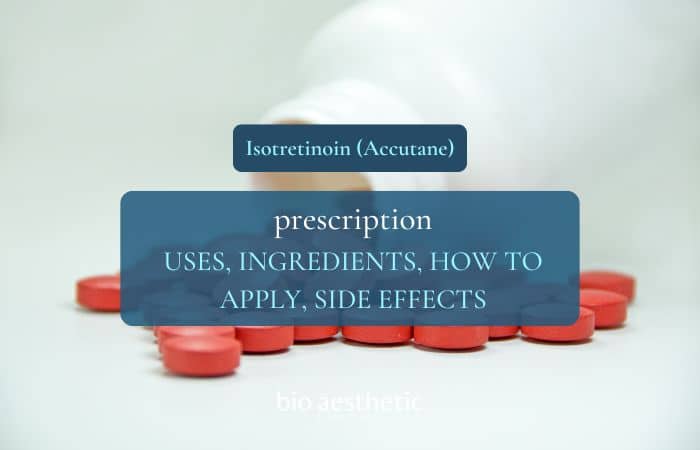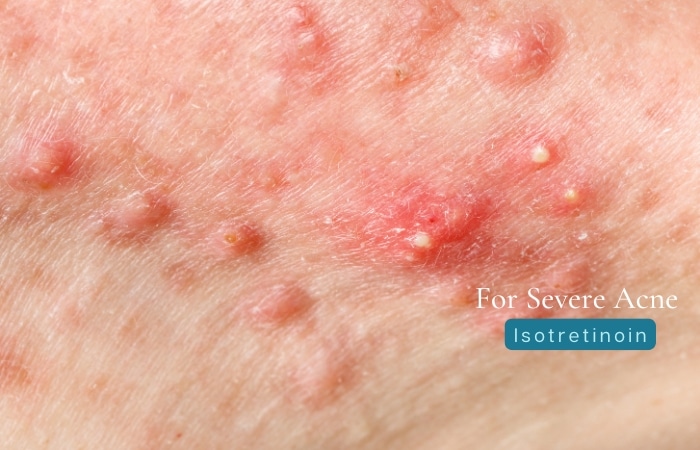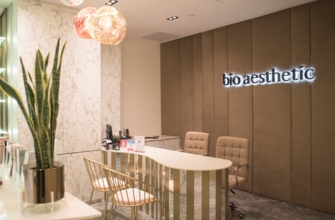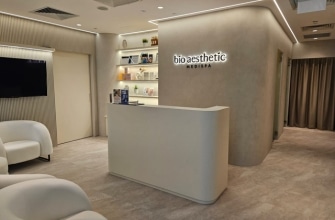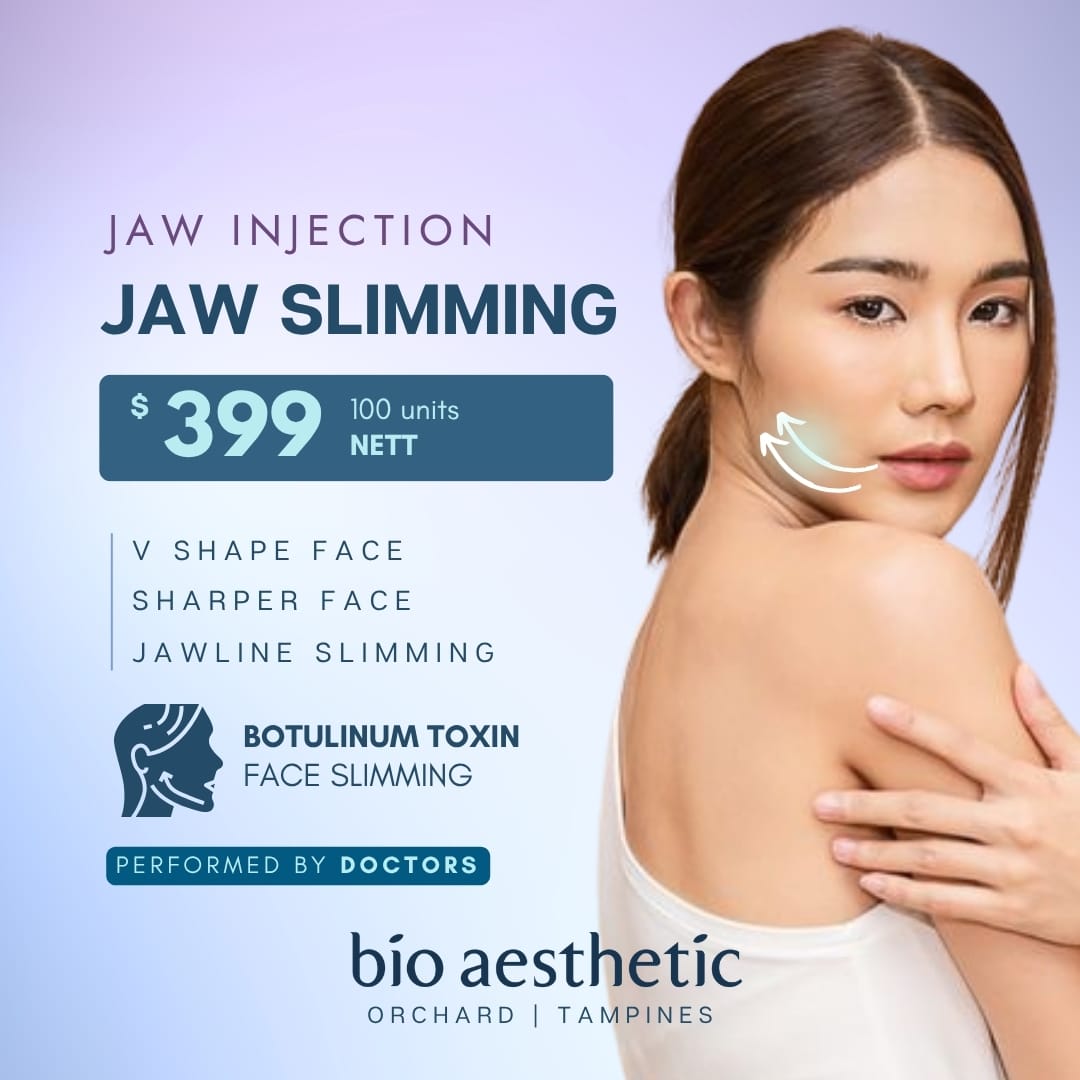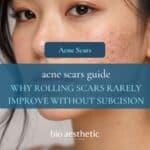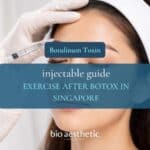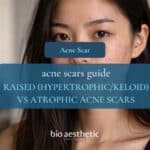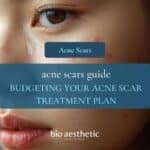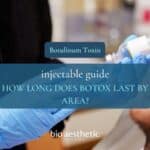Learn how Isotretinoin (Accutane) can help manage severe acne when other treatments fail.
This detailed Singapore guide explains its benefits, risks, monitoring, cost transparency, and what to expect under medical supervision.
What Is Isotretinoin?
Isotretinoin, commonly known as Accutane, is a prescription-only oral medication derived from vitamin A.
It is used to treat severe, cystic, or nodular acne that has not responded to topical treatments or oral antibiotics.
It works by reducing oil production from sebaceous glands, normalising skin cell turnover, and decreasing inflammation that drives acne formation.
As a result, pores stay clearer and breakouts reduce dramatically.
Benefits of Isotretinoin (Accutane)
Isotretinoin is considered one of the most effective long-term acne treatments available under medical supervision.
Unlike topical creams or antibiotics that temporarily control breakouts, isotretinoin targets the root causes of acne, excessive sebum, clogged pores, inflammation, and bacterial overgrowth.
- Long-term remission: Many patients experience clear skin for years after completing a course.
- Reduces scarring risk: Early treatment can prevent new deep acne lesions that cause permanent acne scars.
- Decreases oiliness: Sebum glands shrink, making skin less oily and less prone to new breakouts.
- Improves confidence: Clearer skin often leads to better self-esteem and psychological well-being.
Who Is Suitable for Accutane?
Accutane is ideal for patients struggling with severe, scarring, or resistant acne.
You may be a suitable candidate if:
- You have persistent acne that did not improve after antibiotics or topical medications.
- Your acne leaves deep scars or causes pain and inflammation.
- You experience emotional distress or reduced confidence from acne.
- You are medically fit and able to attend regular check-ups and blood tests.
It is not suitable for pregnant or breastfeeding women, or individuals with liver, lipid, or certain psychiatric conditions.
How Treatment Works
The dosage is customised according to your weight, acne severity, and treatment tolerance.
Most patients undergo a 4–8 month course, during which acne progressively reduces and oil glands shrink.
Periodic blood tests monitor your liver enzymes and cholesterol levels.
During this time, patients are advised to avoid alcohol, excessive sun exposure, and blood donation.
Women of childbearing age must follow strict contraception guidelines as isotretinoin is not safe during pregnancy.
Risks & Side Effects
While isotretinoin offers lasting improvement, it requires careful monitoring due to potential side effects.
Most are manageable with doctor guidance and proper skincare.
Common Side Effects
- Dry lips, mouth, and skin — use hydrating lip balm and moisturiser.
- Dry eyes or mild irritation — artificial tears can help.
- Increased sun sensitivity — apply SPF 30+ sunscreen daily.
- Temporary acne flare-up during early stages of treatment.
Less Common But Important Risks
- Liver and cholesterol changes: Monitored through regular blood tests.
- Pregnancy risks: Strictly contraindicated during and one month after treatment.
- Mood changes: Rare, but report any symptoms promptly.
- Bone or muscle aches: May occur during extended use or high doses.
Comparison with Other Acne Medications
Isotretinoin differs from other acne medications by targeting the core causes of acne, not just its symptoms.
The table below outlines how it compares with commonly prescribed alternatives.
| Medication Type | Common Brands | Main Mechanism | Typical Duration | Relapse Likelihood |
|---|---|---|---|---|
| Isotretinoin (Accutane) | Oratane, Roaccutane, Claravis, generic isotretinoin | Reduces sebum, unclogs pores, anti-inflammatory, long-term control | 4–8 months | Low (10–20% relapse) |
| Oral Antibiotics | Doxycycline, Minocycline, Erythromycin | Reduces acne bacteria and inflammation | 3–6 months | Moderate (may relapse after stopping) |
| Topical Retinoids | Adapalene (Differin), Tretinoin | Unclogs pores, prevents new comedones | Ongoing | High (maintenance needed) |
| Hormonal Therapy | Oral contraceptives, Spironolactone | Balances hormones that trigger acne | 6–12 months | Variable |
Before & After Treatment
Many patients see significant skin transformation after completing a full course of isotretinoin.
Improvements include reduced oiliness, fewer acne lesions, and smoother, clearer skin.
Due to Singapore’s healthcare advertising regulations, before-and-after photos cannot be publicly displayed online.
However, reference images and real patient outcomes can be reviewed privately during your medical consultation.
Costs in Singapore
Under Singapore’s healthcare advertising laws, exact treatment prices cannot be publicly displayed.
We maintain full price transparency during consultation — your doctor will provide a detailed breakdown based on dosage, duration, and follow-up needs.
Contact us for accurate cost information or to schedule a consultation. Our clinic provides transparent pricing for all acne and isotretinoin treatments.
FAQs
How quickly does isotretinoin work?
Oiliness and breakouts often improve within 4–8 weeks, with larger improvements over several months. Full courses commonly run 4–8 months.
Will acne return after I finish?
Many patients enjoy long-term remission, though relapses can occur. Maintenance with topicals may be advised.
Can I drink alcohol during treatment?
Minimise alcohol, as isotretinoin and alcohol together may strain the liver and raise triglycerides. Follow your doctor’s advice.
Can I have laser/peel treatments while on isotretinoin?
Some procedures may be deferred; others may be possible with specialist guidance. Always clear with your doctor first.
When is pregnancy safe after stopping?
Avoid pregnancy during treatment and for at least 1 month after stopping; follow your doctor’s testing and contraception advice.{index=29}
Why can’t I donate blood?
To prevent exposing a pregnant recipient to isotretinoin, blood donation is avoided during therapy and for 1 month after.
What are the most common side effects?
Dry lips/skin, dry eyes and sun sensitivity are common and usually manageable with moisturisers and SPF.
What serious issues should I watch for?
Contact your doctor if you notice mood changes, severe headaches/visual symptoms, or signs of liver/lipid issues.
How is the dose chosen?
Doctors individualise dosing based on weight, acne severity and tolerance; cumulative dose concepts are often used.
Is isotretinoin suitable for body (back) acne?
Yes. Truncal acne may require longer courses or higher cumulative dosing — your plan will be personalised.
Meet Your Doctor
Dr Vijay Sampath, M.B.B.S, M.S (Gen Surg), DNB (Gen Surg), MRCS (Edinburgh) —
Dr Vijay is an SMC-accredited medical doctor with years of experience treating acne and prescribing isotretinoin safely.
Medical Disclaimer
This article is for educational purposes only and does not replace a professional medical consultation.
Isotretinoin must only be taken under licensed medical supervision. Suitability depends on your health, lab results, and clinical assessment.
Last updated: October 2025

